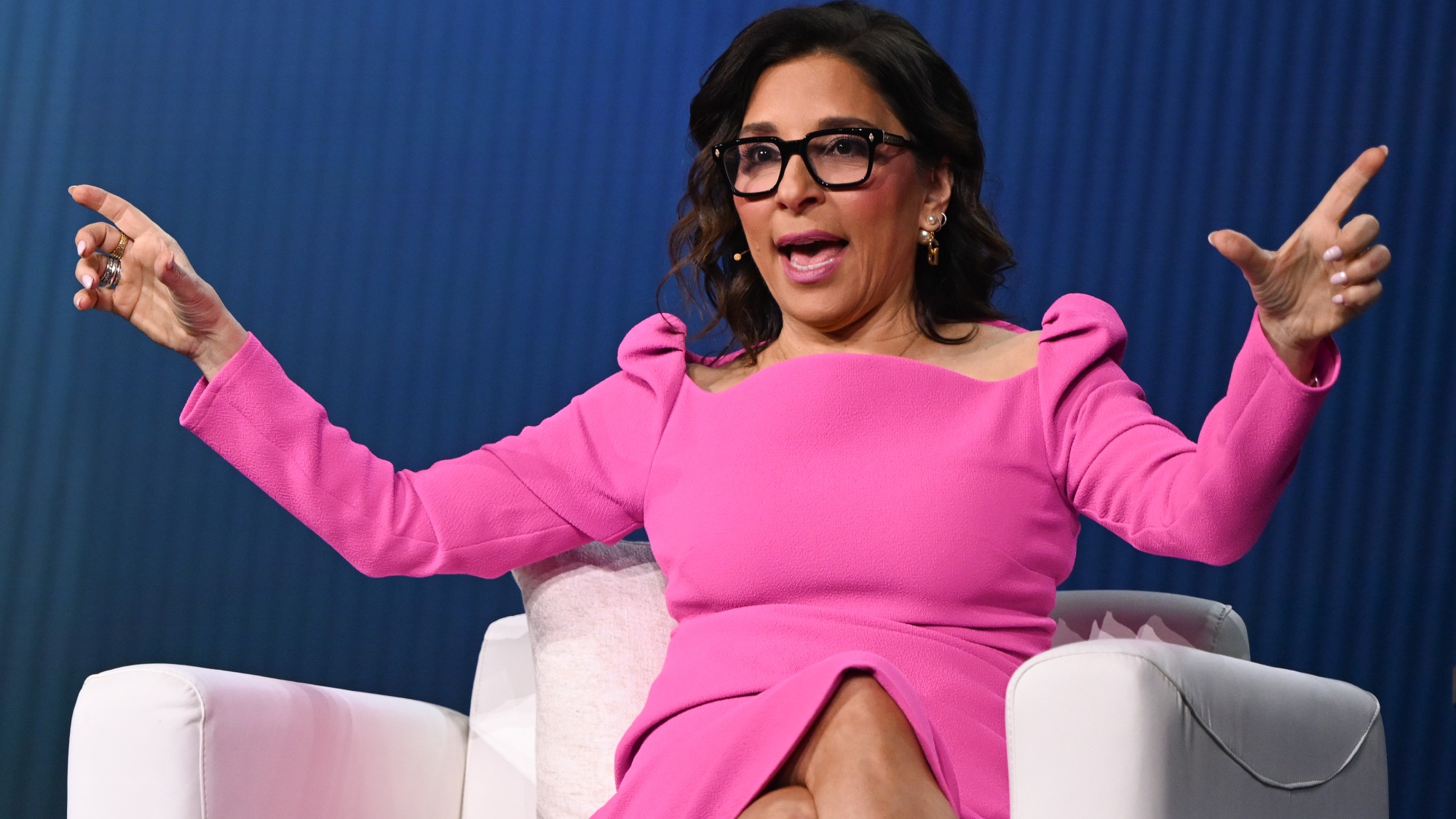Why has Stephen King quit Facebook?
Horror author protests social network's policy on political ads

A free daily email with the biggest news stories of the day – and the best features from TheWeek.com
You are now subscribed
Your newsletter sign-up was successful
Stephen King has quit Facebook in protest at the “flood of false information allowed in its political advertising”.
Explaining his decision, the horror novelist said he also lacked confidence in Facebook’s ability to protect privacy.
King, who is described by The Guardian as a “prolific user of social media”, wrote on Twitter: “I'm quitting Facebook. Not comfortable with the flood of false information that's allowed in its political advertising, nor am I confident in its ability to protect its users' privacy.”
The Week
Escape your echo chamber. Get the facts behind the news, plus analysis from multiple perspectives.

Sign up for The Week's Free Newsletters
From our morning news briefing to a weekly Good News Newsletter, get the best of The Week delivered directly to your inbox.
From our morning news briefing to a weekly Good News Newsletter, get the best of The Week delivered directly to your inbox.
CNN reports that King “is politically active and very outspoken, especially regarding his views on US President Donald Trump”.
“And when it comes to Facebook, King isn't much of a fan of it either,” the broadcaster adds.
In recent months, Facebook has come in for increased criticism for refusing to ban paid political adverts. Its social media rival, Twitter, announced last October that it would usher in such a ban, with CEO Jack Dorsey saying that he was taking the move because “political message reach should be earned, not bought”.
–––––––––––––––––––––––––––––––For a round-up of the most important stories from around the world - and a concise, refreshing and balanced take on the week’s news agenda - try The Week magazine. Start your trial subscription today –––––––––––––––––––––––––––––––
A free daily email with the biggest news stories of the day – and the best features from TheWeek.com
On the same day that King told his 5.6m Twitter followers that he was quiting Facebook, its owner Mark Zuckerberg appeared at the Silicon Slopes Tech Summit in Utah.
In a speech declaring that the social media giant would stand up for free speech, Zuckerberg said that his approach was “going to piss off a lot of people”, The Salt Lake Tribune reports.
“Increasingly we're getting called [on] to censor a lot of different kinds of content that makes me really uncomfortable,” the paper quotes him as saying.
“It kind of feels like the list of things that you’re not allowed to say socially keeps on growing... And I’m not really OK with that.”
Last October, Zuckerberg struck a similar chord when The Washington Post reported him as saying: “I don't think most people want to live in a world where you can only post things that tech companies judge to be 100% true.”
Despite refusing to pull political adverts all-together, the company did promise to strengthen safeguards around paid-for political posts ahead of the 2019 European elections.
The move was as part of an effort to prevent foreign interference in elections.
-
 The environmental cost of GLP-1s
The environmental cost of GLP-1sThe explainer Producing the drugs is a dirty process
-
 Greenland’s capital becomes ground zero for the country’s diplomatic straits
Greenland’s capital becomes ground zero for the country’s diplomatic straitsIN THE SPOTLIGHT A flurry of new consular activity in Nuuk shows how important Greenland has become to Europeans’ anxiety about American imperialism
-
 ‘This is something that happens all too often’
‘This is something that happens all too often’Instant Opinion Opinion, comment and editorials of the day
-
 Is social media over?
Is social media over?Today’s Big Question We may look back on 2025 as the moment social media jumped the shark
-
 X update unveils foreign MAGA boosters
X update unveils foreign MAGA boostersSpeed Read The accounts were located in Russia and Nigeria, among other countries
-
 What's Linda Yaccarino's legacy? And what's next for X?
What's Linda Yaccarino's legacy? And what's next for X?Today's Big Question An 'uncertain future' in the age of TikTok
-
 X CEO Yaccarino quits after two years
X CEO Yaccarino quits after two yearsSpeed Read Elon Musk hired Linda Yaccarino to run X in 2023
-
 Musk chatbot Grok praises Hitler on X
Musk chatbot Grok praises Hitler on XSpeed Read Grok made antisemitic comments and referred to itself as 'MechaHitler'
-
 Social media: How 'content' replaced friendship
Social media: How 'content' replaced friendshipFeature Facebook has shifted from connecting with friends to competing with entertainment companies
-
 Meta on trial: What will become of Mark Zuckerberg's social media empire?
Meta on trial: What will become of Mark Zuckerberg's social media empire?Today's Big Question Despite the CEO's attempt to ingratiate himself with Trump, Meta is on trial, accused by the U.S. government of breaking antitrust law
-
 What does an ex-executive's new memoir reveal about Meta's free speech pivot?
What does an ex-executive's new memoir reveal about Meta's free speech pivot?Today's Big Question 'Careless People' says Facebook was ready to do China censorship